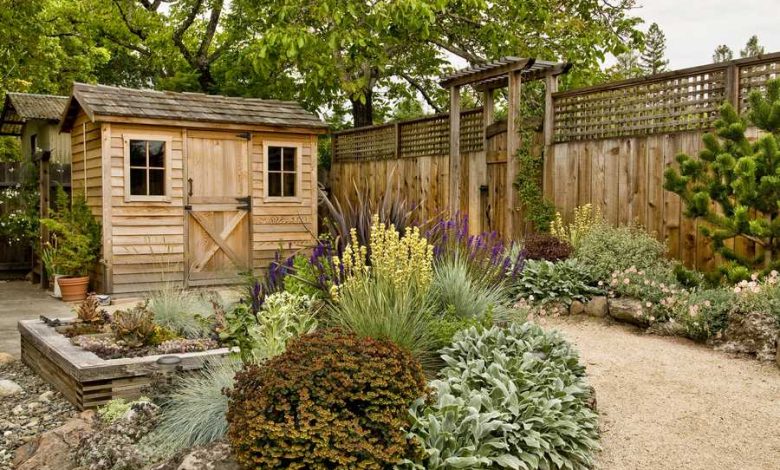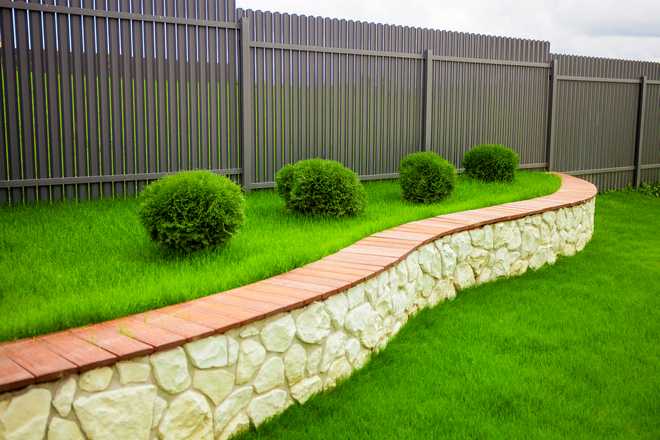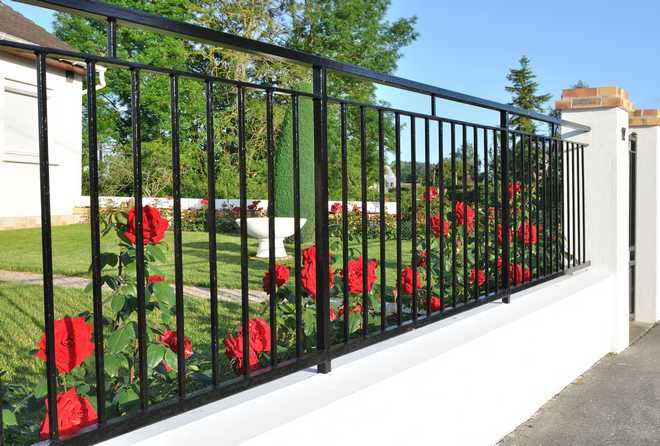
Choosing a fence to delimit your garden is not easy. If some allow to reinforce security against intrusions, others improve the decorative aspect of the garden. Wood, PVC, composite wood, aluminum or wire mesh, discover the advantages and disadvantages of each of these types of fences.
The wooden fence
The wooden fence is the oldest and most classic of fences. The different wood species used (maritime pine, Douglas fir, chestnut, exotic woods, etc.) are renowned for being noble and warm materials. This type of fence has as many advantages as disadvantages.
The advantages of wooden fencing
- It is easy to install when you have the necessary tools;
- Wood is durable and environmentally friendly; some species are naturally weather resistant;
- The design and patterns available are pleasant, varied and warm;
- Wood is an economical material.
The disadvantages of the wooden fence
- Solid wood panels are susceptible to tearing in bad weather;
- The wood is easily passable, which does not really reduce the risk of intrusion into the garden;
- But above all, wood requires regular maintenance to maintain its aesthetics and resistance (paint or stain every 5 years);
- The price varies according to the species of wood.

PVC fence
PVC is a material that is both light and resistant. It is also an elegant material, which enhances the decor of your garden. A PVC fence remains accessible, it costs less than most other separations. Likewise, it does not require any special maintenance and can be cleaned very well with a high-pressure cleaner or with a water jet and a sponge.
In addition, this type of fence is very easy to install on an existing frame (low wall). The PVC fence is therefore ideal in the context of a renovation.
However, PVC is fragile and sensitive to blows. If it is of poor quality, UV rays will turn it yellow over time. Thus, if this type of fence retains all its elegance during the first times, it does not lose its charm after about ten years.
In addition, this type of fence certainly has several forms, but the colors are almost limited to white.
wire mesh fences
Fences are one of the solutions that have always been used to enclose gardens. These are excellent materials that fall into two categories: flexible and rigid mesh.
The flexible mesh fence
A flexible chain link fence comes in galvanized steel or plastic. It is not rigid and requires the installation of a tensioning wire or stiffener.
Easy to install, this type of fence can be held up by different kinds of stakes, made of wood, painted or galvanized steel, or even concrete. In addition, the flexible mesh is offered at a price accessible to small budgets.
As for these disadvantages, the soup wire fence has an average resistance: the wire mesh bends easily and can be cut over time with rust. Similarly, it is not very aesthetic and is actually used for the bottom of the garden or to reduce costs in the case of large gardens to be demarcated.
The rigid mesh fence
The rigid mesh fence exists in several sizes depending on the model: between 1m and 2.50 meters in height.
Benefits of Rigid Wire Mesh Fence
- It is aesthetic, resistant and does not deform over time;
- It is effective against intrusions;
- It can optionally receive a blackout and the mesh can be used as a support for flowering climbing plants ;
- It is available in various colors.
- The many accessories available, such as plates, allow it to be placed on existing concrete.
- Its maintenance is non-existent.
Disadvantages of Wire Mesh Fence
- Panels are significantly more expensive than flexible mesh.
- Their pose leaves no room for error. It is necessary to seal the posts at precise distances from each other, which requires good organization and rigor in the work.
The composite leaf fence
The composite teardrop fence is made from an alloy of recycled wood and plastic. It is a relatively new building material, but it has some special characteristics.
Indeed, a composite fence has a great longevity. Some manufacturers estimate its period of use at 20 years on average. It is therefore a solid fence, which resists bad weather and mold.
It requires less maintenance than wood while being as easy to maintain as PVC.
Likewise, there is a wide range of styles. Whether you are looking for a modern, simple and easy to install fence or another more traditional, but elegant, you will find your taste in this range.
However, composite teardrop fences can end up being relatively expensive in the end, much more so than wood or PVC. In addition, there are currently not really complex designs as some wood lattice panels can be.

The aluminum fence
Among all the types of fences that exist to delimit your garden, the aluminum one is considered the “must”. It is a top of the range garden barrier that has a lot of advantages, but also some disadvantages.
Advantages of Aluminum Fence
- Aluminum is an excellent insulator against wind and heat;
- It is solid and durable over time, does not corrode under sea spray;
- It is very easy to clean, with a sponge or a high-pressure cleaner.
- These fences are available in different colors;
- Their design is modern, often openwork with decorations that can be personalized to suit everyone’s taste.
Disadvantages of Aluminum Fence
- The manufacture and installation of this type of fence often requires calling in a professional;
- As part of a renovation, its modern lines don’t always blend well with older designed homes or gardens;
- Their base price is already relatively high, and the customization options quickly put it out of reach for many budgets.
